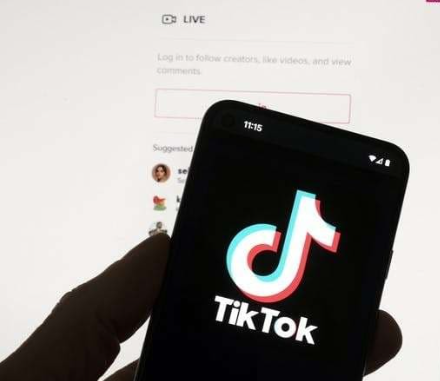
A new bill aimed at decoupling the social media app TikTok from its Communist Chinese parent company has gained broad support in Congress in recent days, but there are some outstanding issues that need to be resolved, the White House says.
The legislation, called the Protecting Americans from Foreign Adversary Controlled Applications Act, would force TikTok’s parent company, ByteDance, to sell the social media app. If ByteDance failed to comply, the app would be banned.
“This is my message to TikTok: break up with the Chinese Communist Party or lose access to your American users,” the Republican co-author of the bill, Congressman Mike Gallagher, said. “America’s foremost adversary has no business controlling a dominant media platform in the United States. TikTok’s time in the United States is over unless it ends its relationship with CCP-controlled ByteDance.”
{snip}
One source in a House GOP office says the office has been “overflowing” with calls from people who did not want the House to take up the forced sale legislation.
According to the Spectator, one young woman called a member of Congress’s office and threatened to kill herself if the member voted to force ByteDance to sell the app. Another caller threatened to kill another member if the lawmaker voted for the legislation.
Congressman Richie Torres accused the app of “lying” to its users by accusing Congress of considering a blanket ban of the app.
On Thursday, Speaker Johnson came out in favor of the legislation, calling it “an important bipartisan measure to take on China, our largest geopolitical foe, which is actively undermining our economy and security.”
On Thursday, the House Energy and Commerce Committee unanimously approved of the legislation, setting up a floor vote before the end-of-March recess.
The legislation is co-sponsored by lawmakers from across the ideological spectrum, including the conservative chairwoman of the Republican conference, Congresswoman Elise Stefanik, and a Progressive Caucus member, Congressman Andre Carson.
The White House has said that it supports the legislation, but it may need more work in order to prevent legal challenges from arising.
“The Administration has worked with Members of Congress from both parties to arrive at a durable legislative solution that would address the threat of technology services operating in the United States in a way that poses risks to Americans’ sensitive data and our broader national security,” the National Security Council said in a statement after the bill’s release. “We look forward to working with Congress to further strengthening this legislation to put it on the strongest possible legal footing.”
{snip}
Senator Schumer has not spoken about this specific piece of legislation but has said in the past that banning TikTok “should be looked at” by legislators. Last year, two members of the Senate Intelligence Committee — Senators Rubio and King — wrote their own bill that would have banned social media apps owned by state-aligned entities from China, Russia, or other hostile nations.
After last year’s launch of the Select Committee on the Chinese Communist Party — of which Mr. Gallagher is the chairman — it was made clear at a committee hearing that the vast majority of members of Congress supported such a ban. The chief executive of TikTok, Shou Zi Chew, was grilled for nearly six hours about his company’s ties to the CCP and its aligned corporations.
In the wake of that hearing, multiple states considered their own TikTok bans. Montana adopted Senate Bill 419, which banned the use of the app in the state. In November, a federal judge placed a hold on the bill, saying that it violated the First Amendment, the Commerce Clause, and other constitutional provisions.
{snip}
A freshman member who often posts on his TikTok account, Congressman Robert Garcia, said at a “Keep TikTok” press conference last year that the app is vital for political candidates, small businesses, and Americans looking for information online.
“TikTok is a lot of things to a lot of different people,” he said at the time. “Think about what it’s done for small businesses — the amount of revenue it’s putting back into the system for all of these content creators, these brands, and these businesses all across the country.”
* Original Article:
https://www.nysun.com/article/bill-that-could-lead-to-banning-of-tiktok-has-broad-support-but-faces-uphill-climb-amid-public-pushback